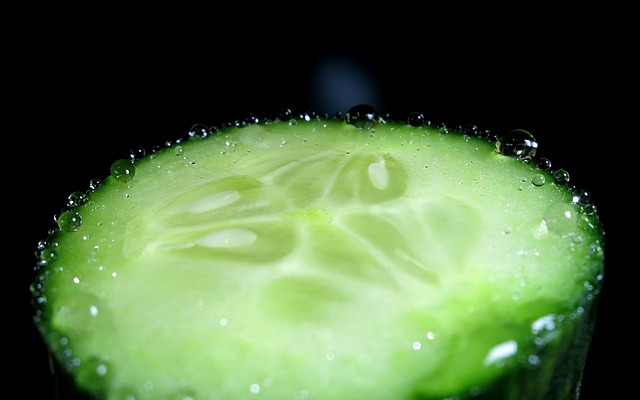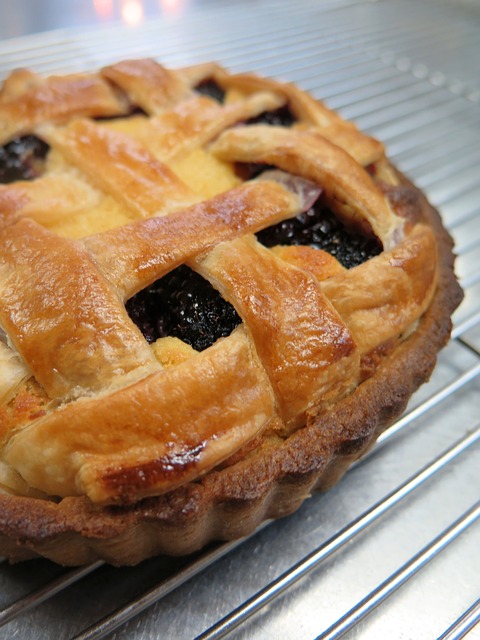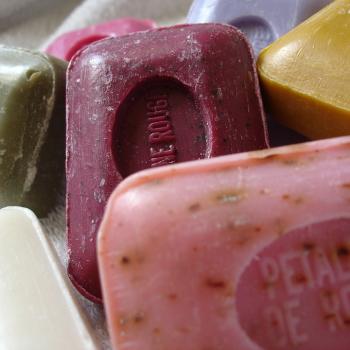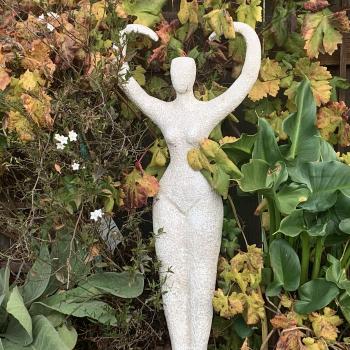Being a kitchen witch has it’s benefits. There’s lots of great food, of course, and there’s something very tangible about the magic too. Dry ingredients are mixed with wet ingredients. Heat and time combine forces and make an alchemy all their own. Food is shared. And then, then there are the stories. Sit with cooks for a meal and you’ll learn why they cook, and why food is such an important part of their magical practice. If you’re lucky, you’ll see the magic taking shape right in front of your eyes. Memories are spoken aloud and ancestors live again. My dear friend and mentor, Juniper, shared a story with me recently about their Granny’s house.
Granny’s House: Where It All Began.
“My ancestors were poor. Granny lived in a house without running water or even a well. Rain was caught from the tin roof, filtered through charcoal, and hand-pumped from a concrete cistern several steps from the back door. Every drop of water was carried into the house in a metal bucket. Her house had four bare rooms: kitchen, living room, two bedrooms. There was no bathroom, no closet, no hallway, no counter, no sink, no cabinets. There was electricity to run the refrigerator and turn maple spindles on the wringer washer. On wash day, the washer was pulled from a corner of the kitchen and carefully filled with hot water in a metal tub that straddle all four stove burners. On Saturday evenings family status determined our order into the more or less clean water in the same tub. There was a pot-belly stove for heat, fired from a pile of coal in the side yard. With electricity, Granny no longer heated heavy irons on the stove top for smoothing wrinkles from our clothing. But they were still there, in case.”
Granny’s House: There Was Always Food
“Despite being poor, there was always food. They harvested corn, beans, squash, tomatoes, and lettuce from the steep Appalachian Mountains; from land not flat enough, from soil too thin to be cultivated with machines. They had eggs from their chickens. When the chickens were too old to lay, they were slaughtered, fried, and served to the preacher for Sunday dinner. My ancestors herded cows each evening from grassy hollers, rhythmically squeezed their udders for creamy milk. They raised fat hogs for bacon and pork.
My grandmother never owned or even imagined owning a car. She caught a ride on Saturday into town with a neighbor to pick up the welfare flour, sugar, and butter she was entitled to. Granny had a big garden, carefully watered with buckets carried from the cistern on hot, dry days. She saved every greasy spoonful of bacon fat to dress a salad, cook greens, or slather onto the raw dough of loaves or rolls, their tops crusty and brown when they came out of the oven. On hot summer afternoons, cicadas screaming and not a breath of air, there was a plate of raw cucumber soaking in white vinegar on the kitchen table to grab as we ran through. Cucumbers were coolin’.”

Granny’s House: A Place of Belonging
‘What was less present, and therefore more precious in the history of my people, was belonging. My ancestors knew themselves as a people apart from the larger world. Tossed between the shores of Scotland and Ireland before immigrating to this continent, we survived on land that was never ours for long. As the world rushed on, there were so many ways we didn’t fit. Our list of sins was long. Playing cards, dancing, drinking, smoking the tobacco that some of us raised because it was the only possible cash crop, watching movies or television. For women there were special prohibitions: cutting our hair, wearing pants, jewelry or makeup. And don’t even think about fornication or adultery.
What we had was each other. We belonged to tiny church congregations, to the people that we sang with, prayed with, who cared for our children and drove us to the doctor when we were sick. We tucked ourselves into the steep cracks of the Allegheny Mountains; into places so remote, that you can still sit at the restaurant table and feel like the first stranger people have seen in weeks. Places that no one goes to. Hearth was where we made belonging.”
Cooking For Granny
“If I could cook one dish for my ancestors, I would spend an afternoon on a sunny hillside, carefully reaching among thorns to collect wild blackberries. For every handful into the bucket, a few would land in my mouth, warm and sweet with the sun. I’d come back to my grandmother’s kitchen and cut cold lard into white pastry flour with a dash of Celtic sea salt. I’d sprinkle the larded flour with a bit of water from the ladle in the metal bucket on a side table, kneed it gently and wrap it in wax paper. I’d toss the berries with sugar and cornstarch. Cornstarch thickens without making the filling opaque. I’d roll the dough between flour-dusted tea towels, carefully lift and drape it into a pie pan and crimp the edges. I’d fill the shell with berries, weave strips of dough across the top and sprinkle them with sugar; not so much for sweetness as for the glisten of crystals against the browned crust. As the kitchen heated from the oven, I’d sit in the shade on wooden back stoop, hope for a breeze, and wait for the smell of warm pie and tangy berries to waft through open windows.
When the pie was cool enough to eat, I’d have to choose. Granny would have punched holes in each side of the top of a can of evaporated milk and poured that over a piece of the pie, thick and creamy. Dark berry juice would blend with the milk to make swirls ranging from deep purple to pink. But if there was a cow anywhere around, I’d use cold raw cream.”

Cooking Together
Juniper’s story reminds me so much of my own grandmothers. Although the locations couldn’t be more dissimilar, I grew up in London, the circumstances are eerily familiar. In a few short months, I’ll be working in a kitchen with Juniper and four other cooks, serving a magical community for a week. The menu hasn’t been determined yet, but I hope Granny’s Blackberry pie makes an appearance.
















